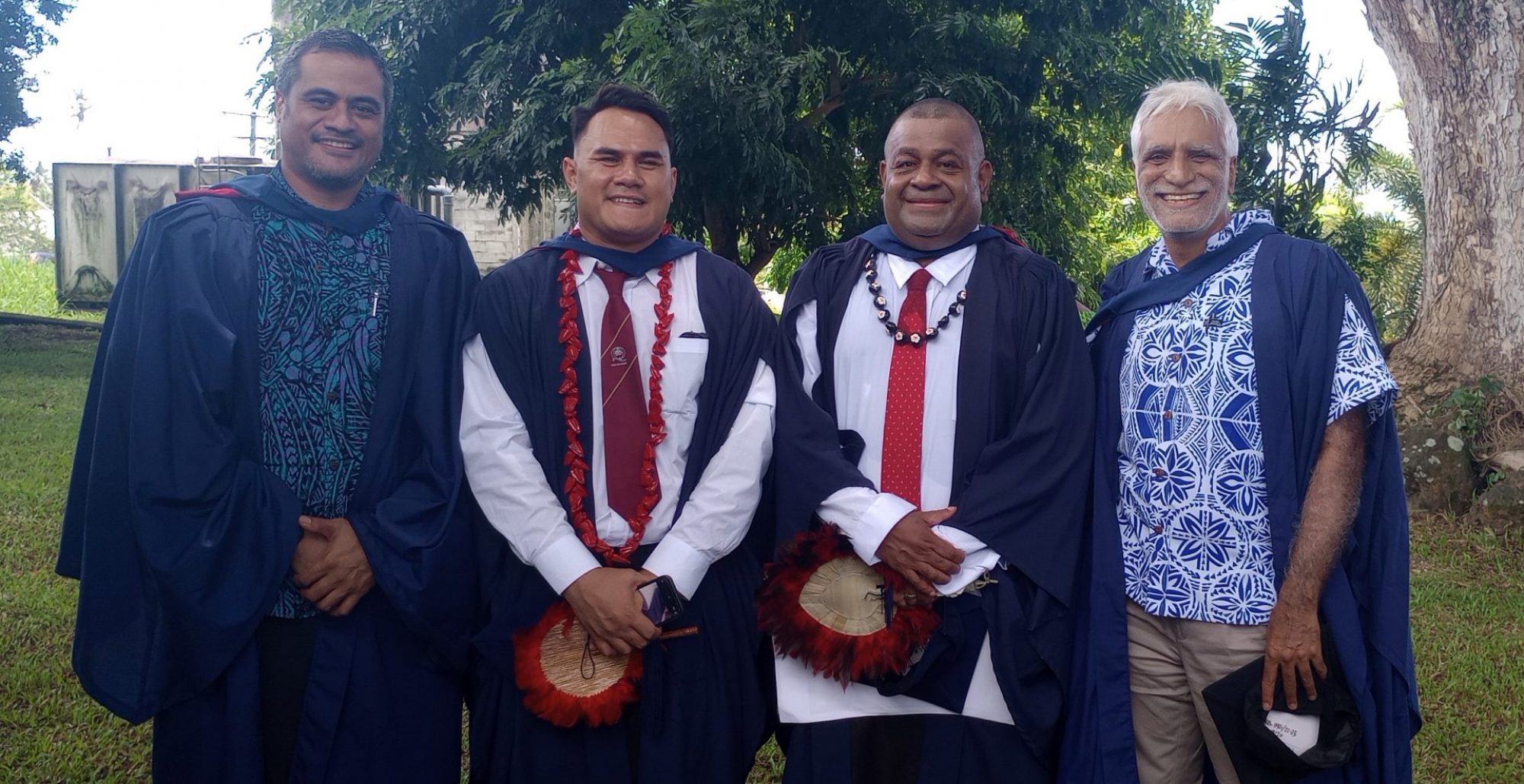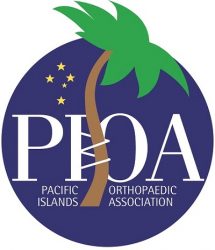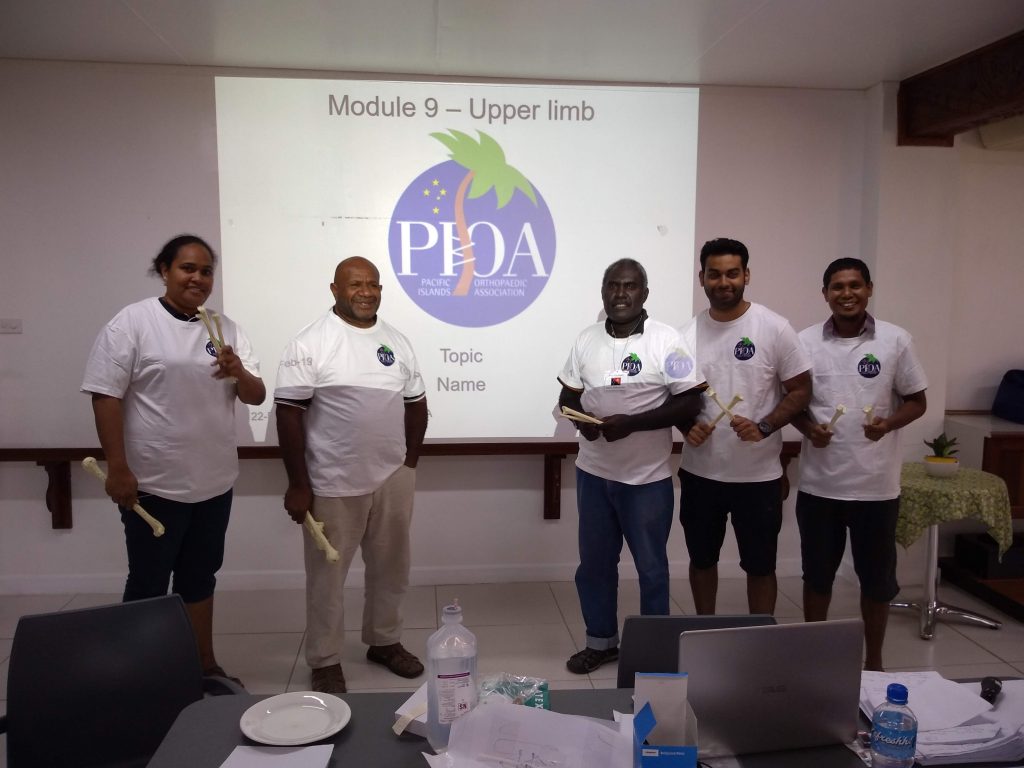
Module 1 was held at the Modilon Hospital and the Madang Lodge Conference room in Madang, Papua New Guinea(PNG) from February 4th to February 22nd, 2019. There were 14 trainees in the Introductory module and 17 trainees attended the Upper limb module. They are Dr. Shaun Mauiliu from Apia in Samoa, Dr. Alex Munamua, Dr. Reshwin Rajan and Dr. Clay Siosi from Solomon Islands, Dr. Pita Sovanivalu from Fiji, Dr. Johnny Hedson from Pohnpei, Federated States of Micronesia, Dr. Naseri Aiotato from American Samoa, Dr. Juvencio Dias our first trainee from Timor Leste and Dr. Haynes Rasin from Buka (autonomous region of Bougainville), Dr. Jimmy Yakea from Popondetta, Dr. Viola Kokiva, our first female trainee, from Kavieng, Dr. Raymond Saulep and Dr. Bohu Urakoko from Kundiawa, Dr. Felix Diaku and Dr Kevin Lapu from Rabaul, Dr. Stevens James from Lae and Dr. Anthony Nasai from Wabag (all from PNG). The lectures were delivered by Dr. Bruno Fries from Switzerland, Dr. David Bartle, Dr. Vaughan Poutawera and Dr Roy Craig from New Zealand, Dr. Stephen Kodovaru from Solomon Islands, Dr Sara Coll, Dr. Ian Incoll, Dr Paul Hitchen, Dr. Stephen Quain, Dr. Matthew Sharland, Dr. John Stephen, Dr. Graham Gumley, Dr. Keat Choong (Infectious diseases) and Dr. Des Soares from Australia.
In the Introductory module students were taught a systematic approach to history taking, clinical examination and investigation with a focus on trauma and common orthopaedic conditions. In the first week the practical sessions were aimed at common trauma management options including external fixation and basic internal fixation.
In the upper limb module, the students were taught a systematic approach to diagnosis and management of Upper limb conditions. This included clinical history taking and a thorough clinical examination with emphasis on a systematic approach to the management of conditions affecting the shoulder, arm, elbow, forearm, wrist and hand. This included the management of the soft tissues and the management of closed and open fractures. In addition, there were focussed lectures and practicals on the management of hand trauma with the first ever microsurgery course over 4 days.
Lectures were supplemented with practical demonstrations. Each morning we commenced with a ward round seeing two or three patients and getting the students to present the history and clinical signs of the patients. Their management was then discussed and suggestions for improvement were made. This was a useful exercise as we were able to improve clinical skills. It was also helpful to try and elucidate clinical reasoning and decision making and help with developing these skills. The students enjoyed having expert advice on the management of elective conditions and trauma affecting the upper limb PNG has a large volume of severe trauma due to bush knife (machete) and gunshot wounds.
The highlight of the course was the 4 day microsurgery workshop each afternoon. Our students went from complete novices to being able to do a nerve repair using a “chicken Maryland” model in 15 minutes. The chicken sciatic nerve is the same diameter as a human digital nerve in a finger. PIOA is very grateful to Dr. Graham Gumley for leading this part of the course. The students were assessed with a written examination on the final day of the course.
Overall the 3-week module was intense, and it was obvious the students were stimulated to learn. The students are now already reading ahead to prepare for the next module on Knee and Foot and ankle to be held in Kundiawa, PNG, commencing on 29 July 2018.
Our thanks to the staff and patients of the Modilon Hospital, Madang and the Madang Lodge Hotel for the use of the Conference room and for allowing us to conduct the course there. Our special thanks to the staff of Madang Lodge Hotel who provided nutritious food for the duration of the course and made us feel at home. Finally, this module would not have been possible without the generous financial support from Wyss Medical Foundation, AO Alliance Foundation and South Pacific Projects.
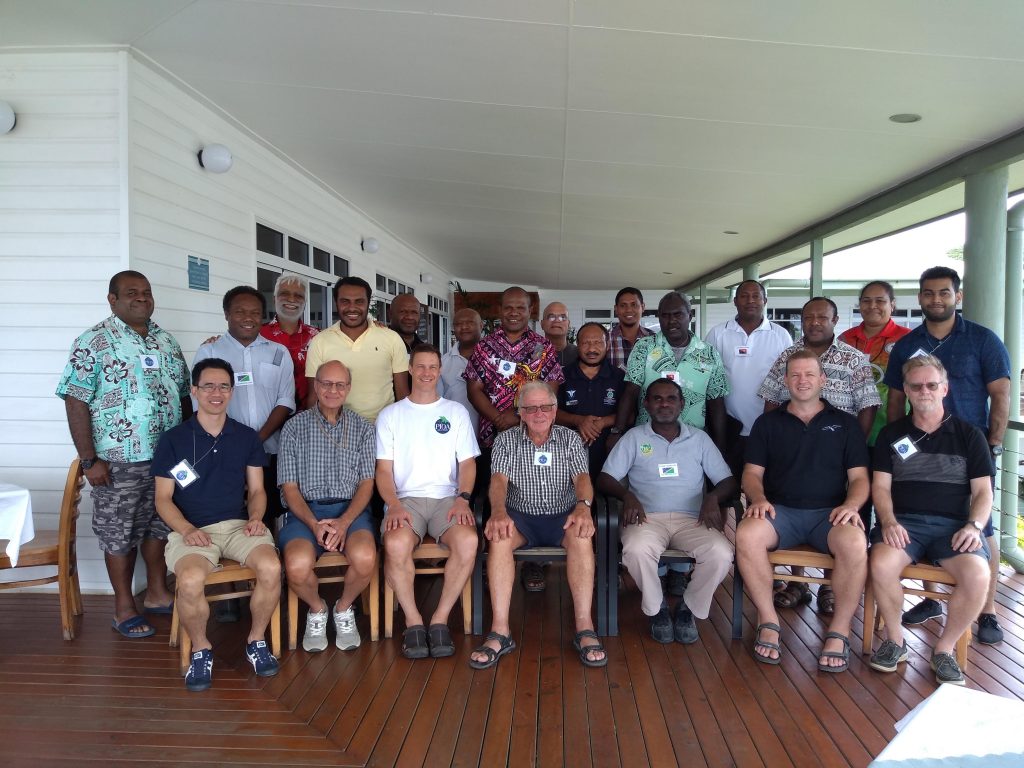
Staff and students at the end of week 1
Front row L to R: Keat Choong (AUS),Bruno Fries (Switzerland), Vaughan Poutawera (NZ), John Stephen(AUS), Stephen Kdovaru (SI – President PIOA) David Bartle (NZ), Ian Incoll (AUS)
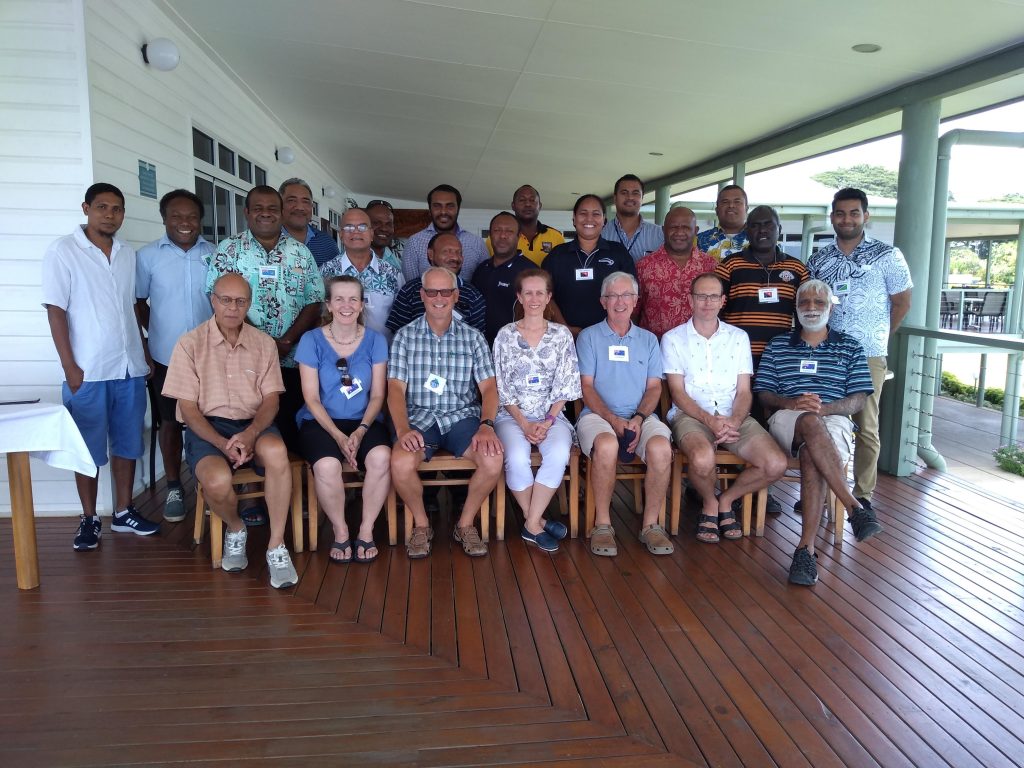
Front row L to R: Bruno Fries (Switzerland), Susan Hitchen, Paul Hitchen, Sarah Coll , Stephen Quain, Matthew Sharland, Des Soares (all Australia)
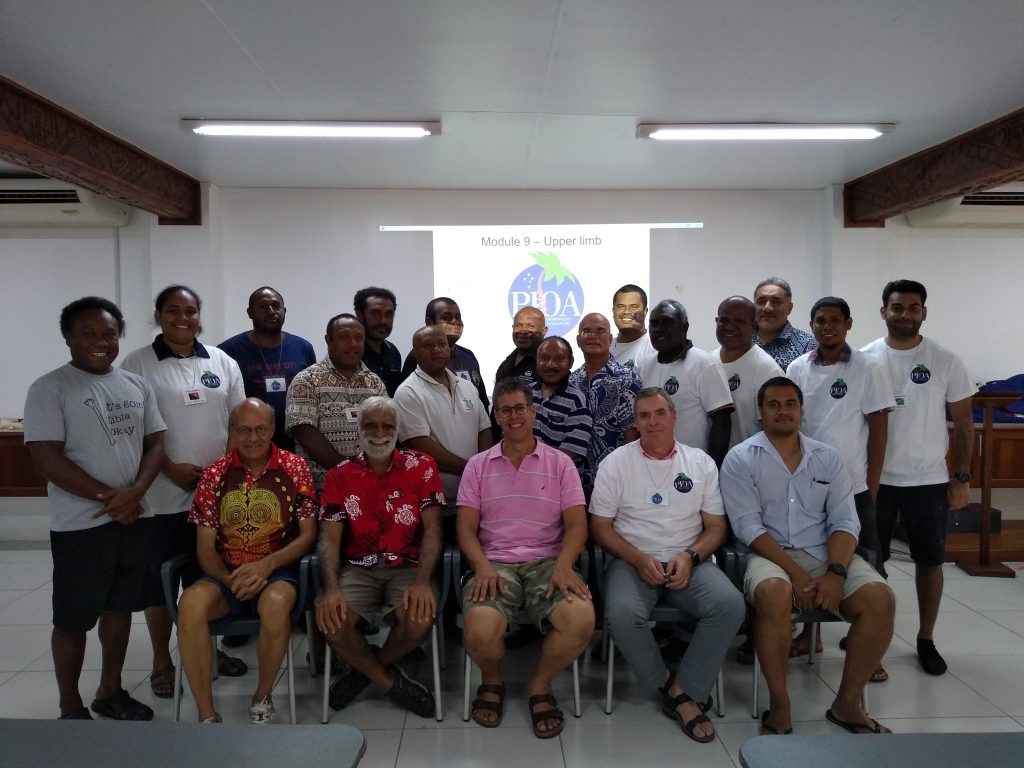
Front row L to R: Bruno Fries (SUI), Des Soares (AUS), Roy Craig (NZ), Graham Gumley (AUS), Shaun Mauiliu (Samoa – Director of Training designate)
